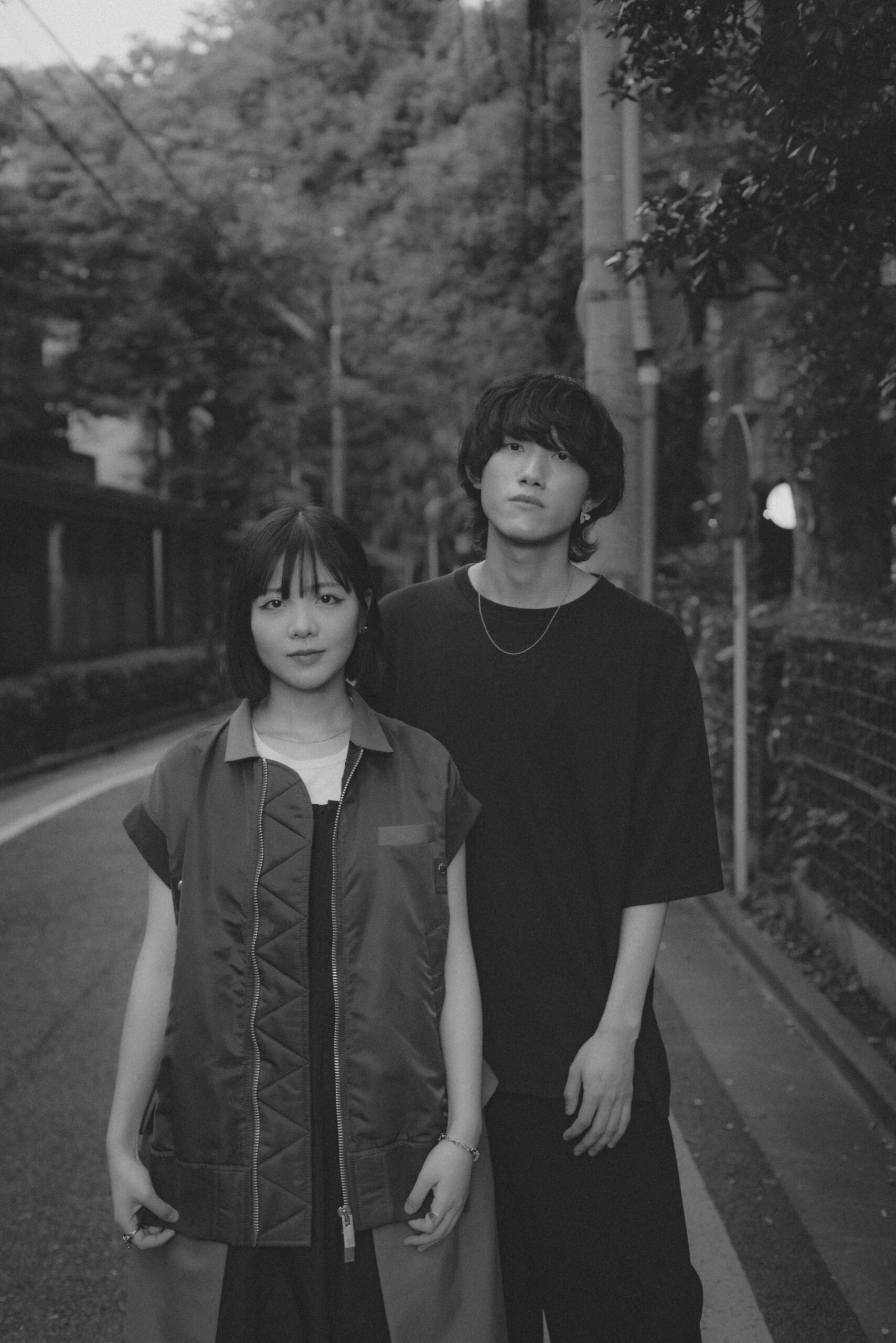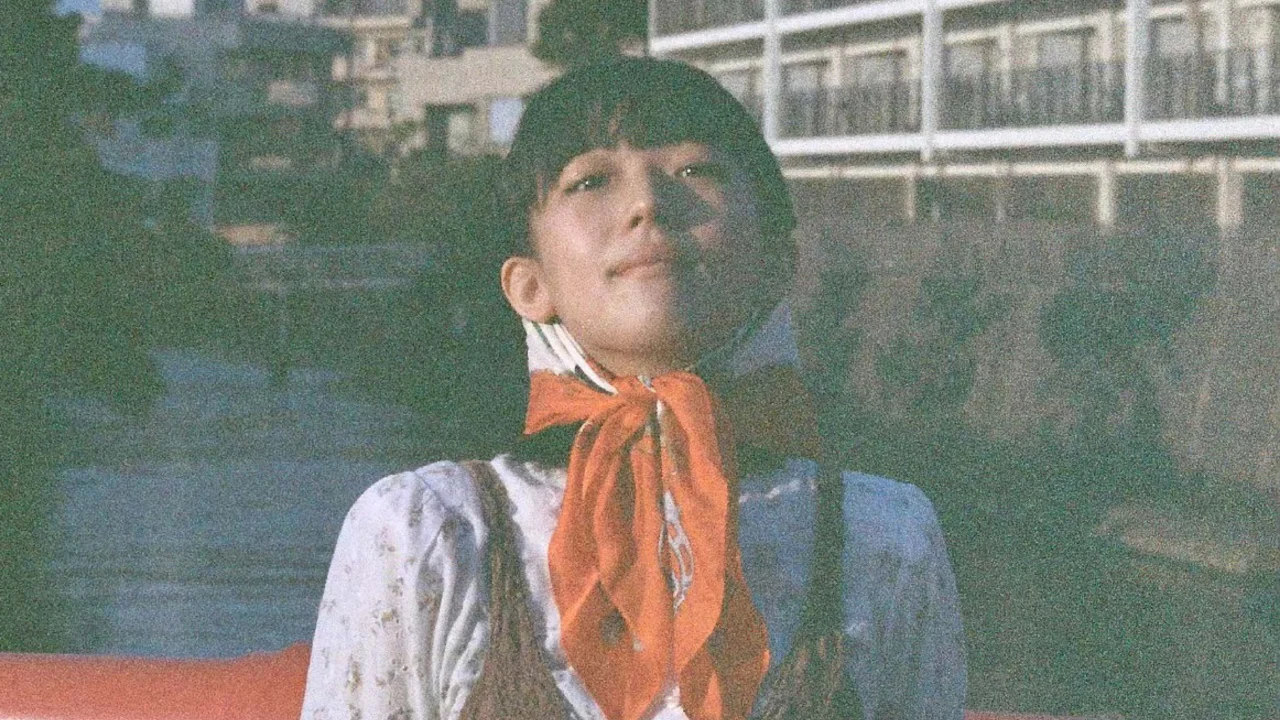There’s a quiet intensity to rubens, a Tokyo-based four-piece who turn the raw textures of everyday life into music that glows with both color and restraint. Their sound captures the small tremors of being alive: fleeting emotions, passing time, the blurred landscapes of memory. It’s a kind of realism that feels both deeply human and quietly transcendent.
Like the greats who came before them such as Spitz and indigo la End, rubens weave vivid guitar tones and intricate rhythms into songs that are as painterly as they are pop. Their music speaks across borders; comments from overseas listeners flood the video for their signature track “Tenshi-san,” proof that what rubens express is something profoundly universal.
Their debut full-length ‘MELT’ takes its title from a word that seems to dissolve boundaries—not as an escape from reality, but as an embrace of it. For rubens, ‘MELT’ is about time flowing forward, about birth inching toward death, and about the undeniable weight of the past we each carry. Through this record, they etch the shape of time itself: its fragility, its beauty, and the courage it takes to keep stepping into the unknown.
In this interview, Etsu (Gt), the band’s founder and principal songwriter, and Serena (Vo/Gt), whose voice lends rubens their unmistakable glow, reflect on the band’s beginnings, the meanings hidden in their lyrics, and the creative spirit that drives them. What emerges is the portrait of a young band burning with quiet conviction, one that turns the fleeting into something eternal.
INDEX
“We Just Wanted to Try It” — A Rock Band Born from Each Member’s Own Aspirations
The band’s name, rubens, comes from the painter Peter Paul Rubens, whom you studied in university. Listening to your music sometimes feels like standing in front of a painting. Have you always drawn inspiration from both music and visual art?
Etsu: I do a lot of drawing myself, and I even paint our album covers. But honestly, music wasn’t my first calling. Before I even started elementary school, I thought, “I’ll probably grow up to be someone who paints.”
I’m from Kanazawa, and as a child I dreamed of entering the local art university and exploring the possibilities that path could offer. Even back then, I was actively absorbing visual art. Music only came later, in my early teens, during those emotionally charged middle and high school years. For me, painting has always been my most fundamental form of expression.
Eventually, I attended Aoyama Gakuin University and majored in comparative arts, a field that allowed me to study various forms of art. In that sense, painting has always been my constant companion—maybe even closer than music—though I’ve never really left either behind.
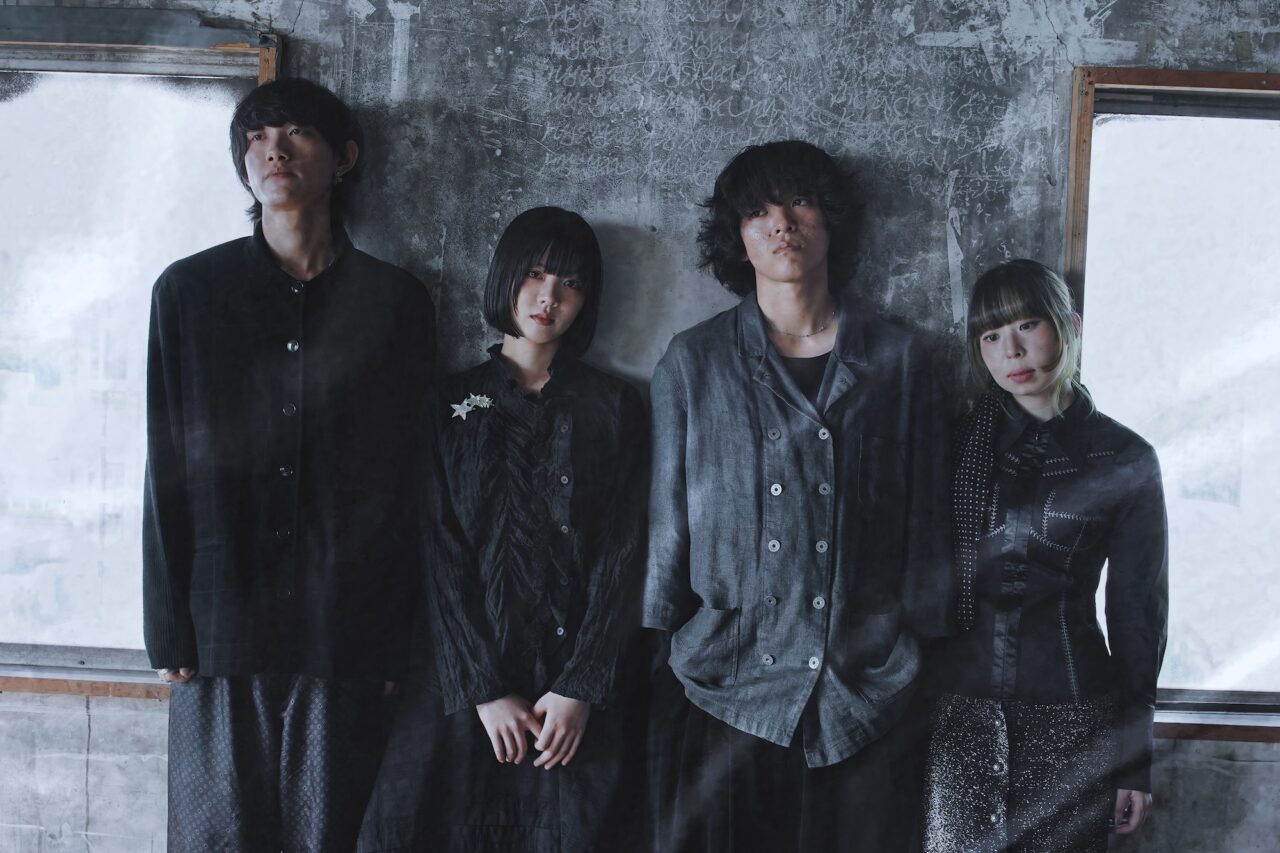
Formed in Tokyo in 2022, rubens officially came together with their current lineup—Serena (Vo/Gt), Etsu (Gt), Mary (Ba), and Matsumaru (Dr) — in April 2023. Since then, they’ve released eight singles and two EPs, steadily capturing the attention of listeners both in Japan and abroad. Their 2024 single “Tenshi-san” became a breakout hit, with its music video surpassing 1.2 million views on YouTube, while their dynamic live performances—including opening for indigo la End at LIQUIDROOM last December and a sold-out first solo show at Shindaita FEVER this January—have cemented their reputation as a must-see act.
Exploring a fresh wave/post-punk-inspired sound on their latest single “Tsukinami-chan,” rubens are set to embark on their first nationwide tour in October. Their debut full-length album MELT drops digitally on October 29 and as a Tower Records exclusive CD on November 5, marking the start of an exciting new chapter for this young, visionary band.
So it’s not that your focus shifted abruptly from painting to music, but that both now coexist in the same creative flow?
Etsu: Exactly. Painting and music may seem like completely different forms, but for me, they come from the same source—my sensibility and sense of aesthetics. You mentioned earlier that listening to our music feels like looking at a painting. Part of that happens naturally, almost unconsciously, but about half of it is intentional. Hearing you say that really makes me realize for the first time that people are actually sensing that [laughs].
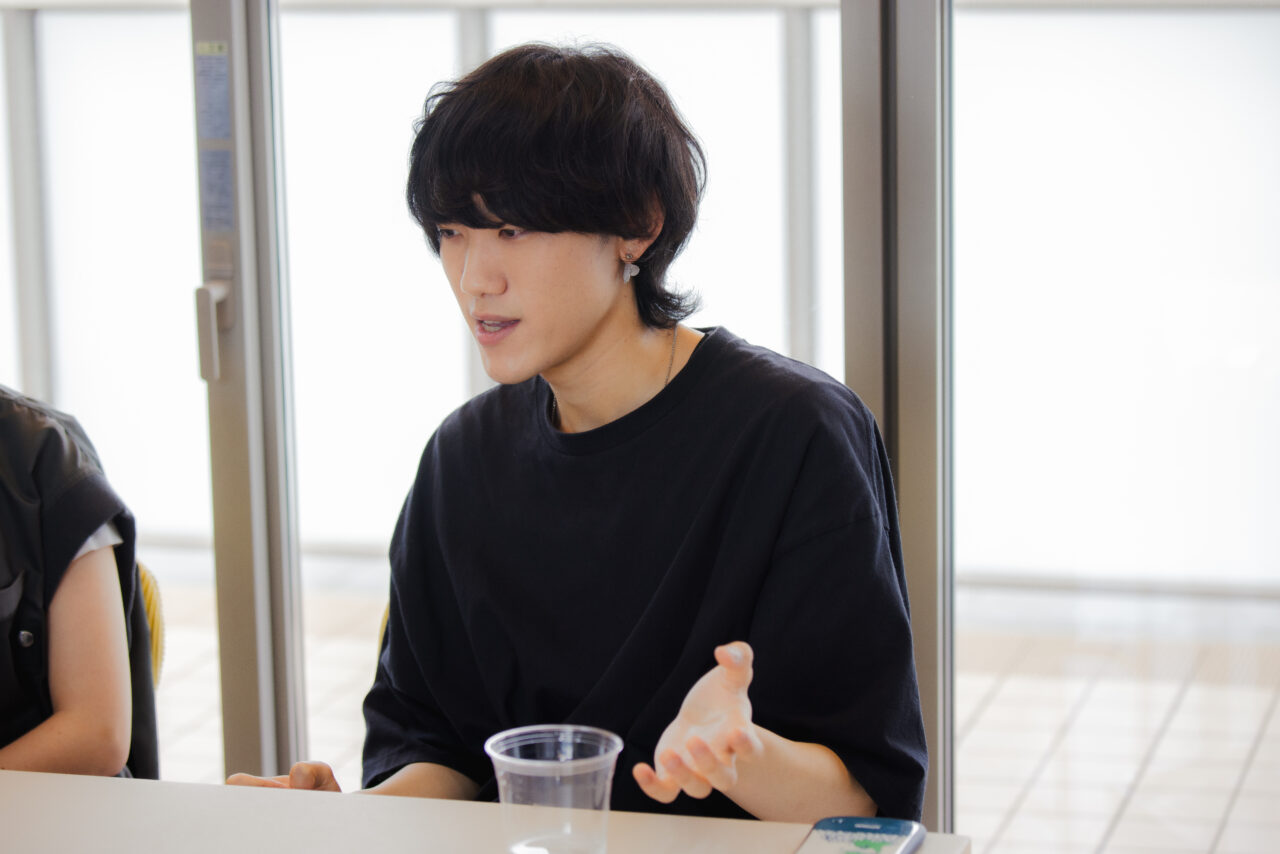
Many listeners probably feel that when they hear rubens’ music. When you say that about half of it is intentional, were you aware of that from the very start of the band?
Etsu: Not really. In the very beginning, we weren’t overthinking anything (laughs). We didn’t have a shared core musical vision. We just got together as a bunch of people from our university light music club and started playing, and over time, things naturally began to take shape. The song “Hakkōsen” on our first EP ripple was actually the first song I ever wrote in my life. Honestly, it’s kind of embarrassing that it’s out in the world [laughs].
Serena, how would you describe Etsu from your perspective?
Serena: I think he’s extremely honest [laughs]. He has this very boyish energy. You can hear it in his songs too—there’s no affectation. Even in conversation, his words feel genuine. He has this incredible ability to simply articulate what he finds “good” and then translate it into music or other forms of expression.
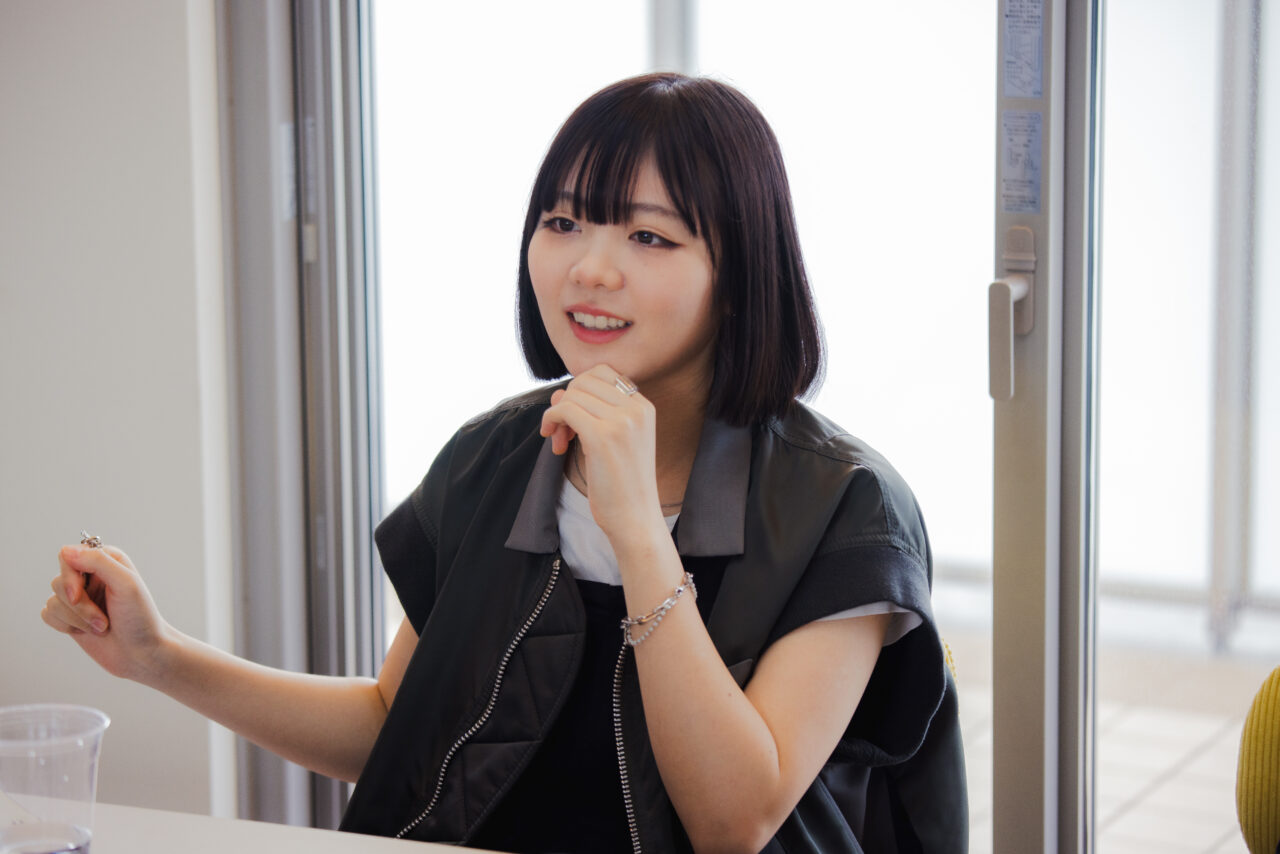
What inspired you both to start a band?
Etsu: Honestly, I just wanted to try it out [laughs]. Guitar was the only instrument I could play, and when we got together through the club, we thought, “Let’s do something everyone can feel and connect with.” That naturally turned into a rock band. Since my earliest musical experiences were with Spitz, I think I’ve always had this sense that music meant being in a band.
Serena: I’ve loved JUDY AND MARY since elementary school, so being in a band was always a dream. But I never really had the chance to do it, and growing up I mostly did things I could do alone. I took piano and violin lessons, and by my second year of university, the pandemic hit, so I was just playing and singing by myself at home. I think that made me quietly long for the experience of creating something together. When Etsu gathered the members and invited me to join, I thought, “Finally, I can be in a band!” — I was really excited [laughs].
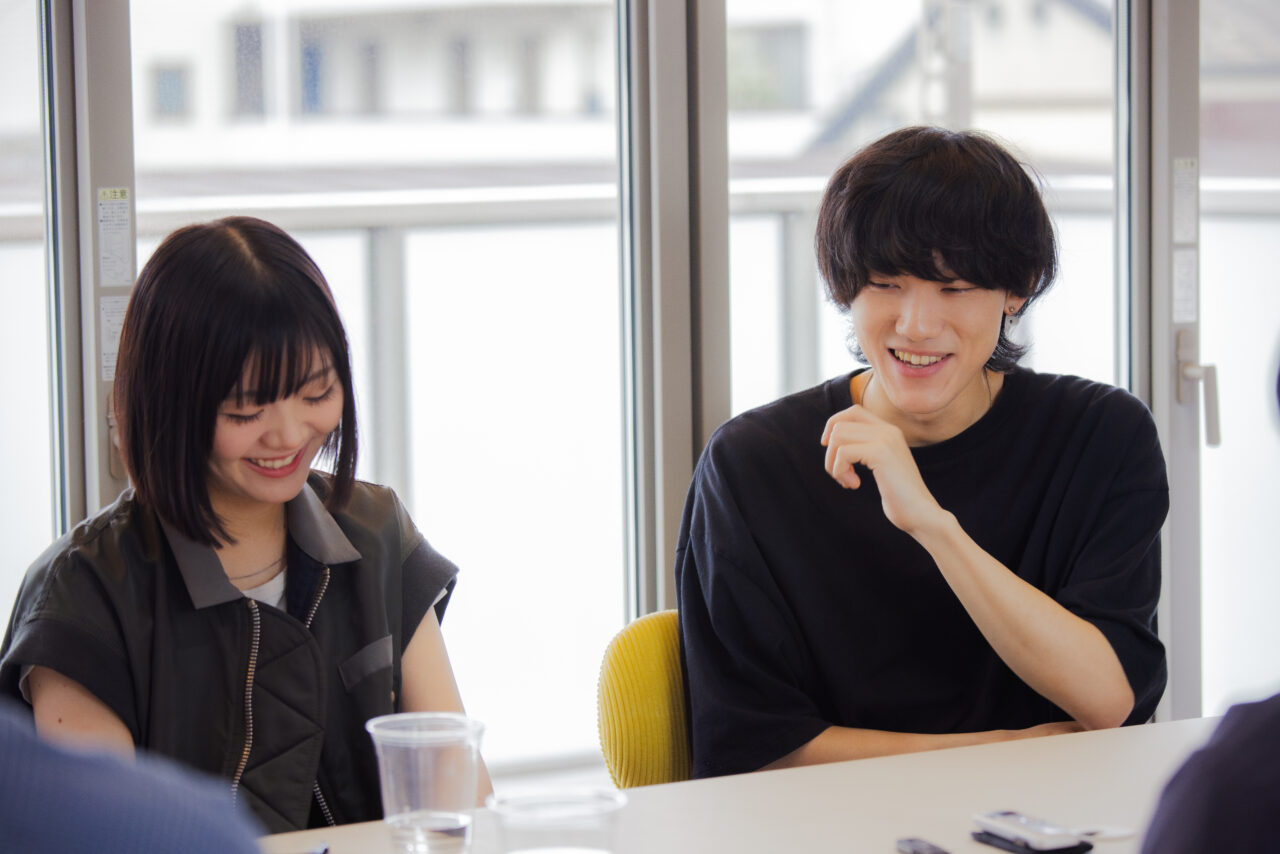
INDEX
“Being Yourself Is Freeing, but It’s Never Simple” — Etsu
The single “Tsukinami-chan,” released this year, was written with Serena in mind. How do you see her from your perspective as a band member in rubens?
Etsu: Lately, I feel like I’m finally connecting with Serena on a deeper level. At first, I simply saw her as a normal university girl, in a positive sense. But over time, I began to sense that she doesn’t fully accept living at the same emotional “temperature” as those around her. That’s probably why I felt drawn to get closer to her. As we’ve grown together in rubens, it seems her determination to challenge what’s considered “ordinary” has only grown stronger.
Serena: I see [laughs].
Etsu: “Tsukinami-chan” is a very straightforward and positive reflection of Serena. She is anything but “ordinary.” I feel like everyone experiences some invisible pressure to be “normal,” yet still thinks, “I’m not that kind of person” or “I don’t want to live so constrained,” always searching for a moment to break free. There are many people who go through life without finding that release. In Serena’s case, I think being in a band gave her a way to channel her wild side effectively. That’s why lately she seems so free and unrestrained.
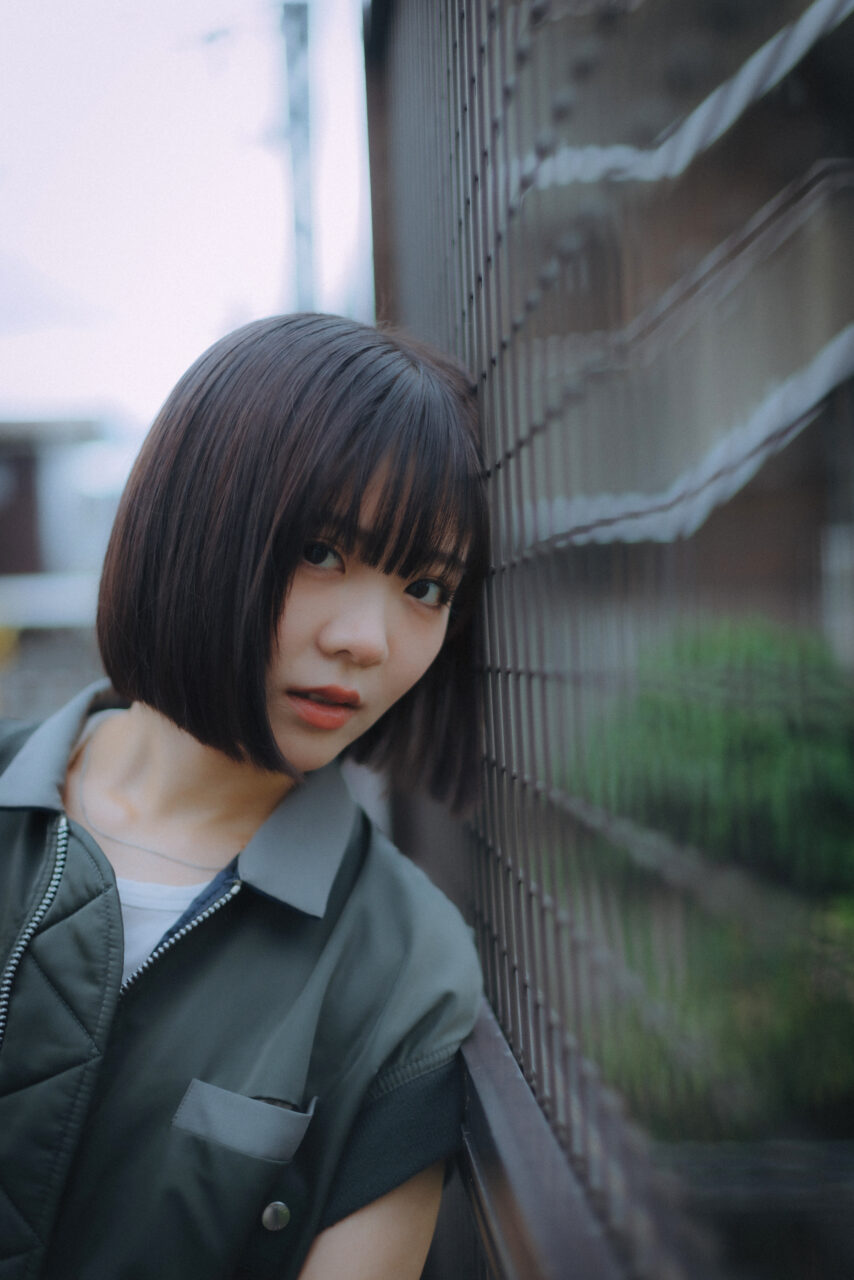
Serena, how do you feel about that yourself?
Selena: I think my parents had certain expectations for me. They probably hoped I would get a stable job and live in a certain way. But deep down, I’ve always wanted to make music my career. Looking back, I realize there were times when I wanted to live honestly but couldn’t. I did have a regular job once, and working there only made that feeling stronger. I had been avoiding what I really wanted to do and hadn’t faced it directly. After we started the band in 2022, I quit my job in 2023, and since then, I’ve really felt a change in myself. I feel like I’ve become more honest about everything.
I feel like rubens might be a band made up of people who all want to truly be themselves.
Etsu: Yeah, I’d say that’s a strong element of who we are.
Serena: Mary (Ba) and Matsumaru (Dr) are the same. They both have strong tastes and clear ideals of themselves. Being the four of us together creates a really positive synergy, but I’ve also realized recently that if we don’t express what we’re thinking in words, no one can really know.
Etsu: Being yourself Is freeing, but it’s never simple It also brings with it new restrictions. I think it is hard to be free. But even though I know it is hard, I want to admit that I am who I am. I think this great desire is what makes the four of us band members work together.
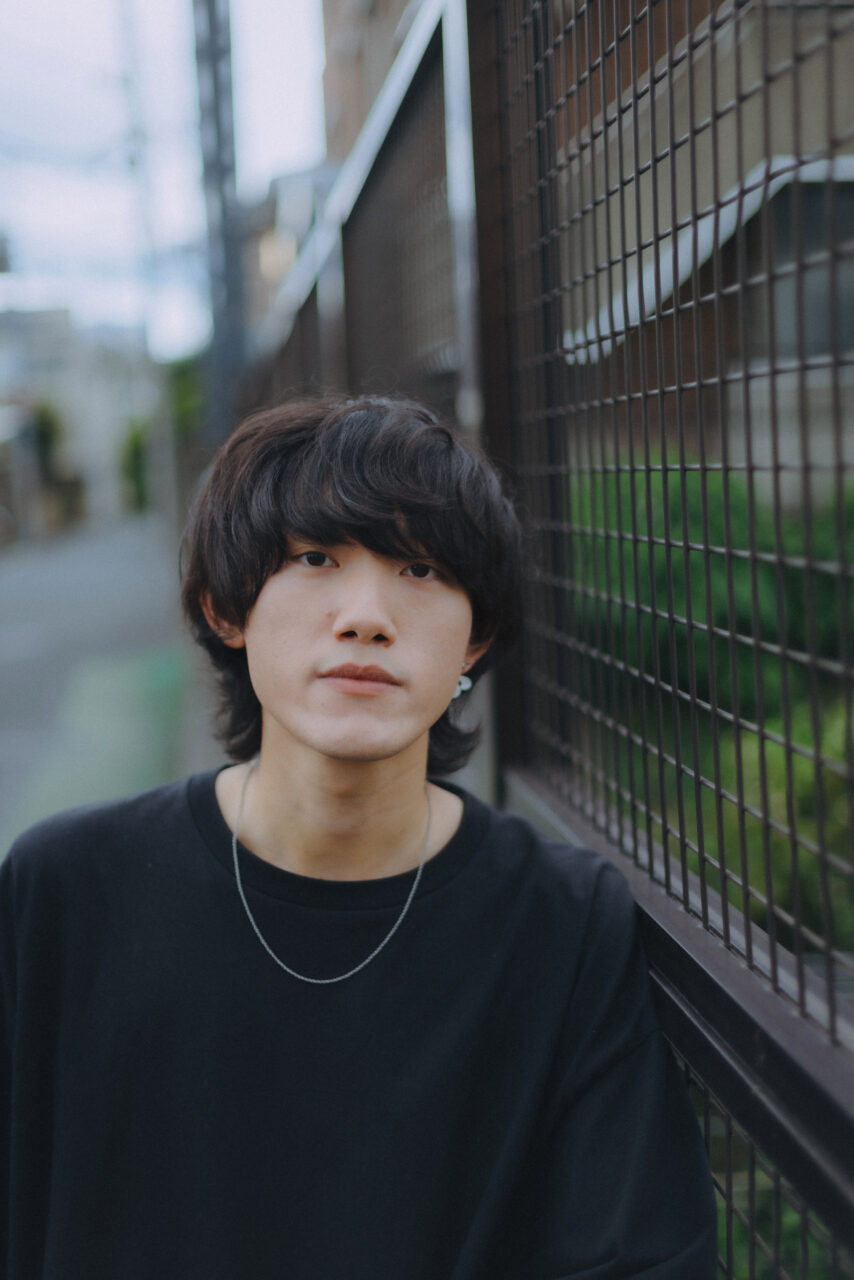
INDEX
In a Life Full of Loss, the Traces of What We Let Slip Away Shape Our Journey
That aspect comes through in your songs as well. On rubens’ music videos, there are a lot of comments from overseas listeners. Do you have any thoughts on why your music is reaching beyond Japan?
Etsu: From a musical perspective, we are influenced by music from abroad, but our melodies are very much in the style of Japanese pop, and maybe that contrast is something people find interesting. Still, it’s strange to me that people who speak different languages and grew up in different countries can have similar reactions to our music as Japanese listeners do. Every country has its own culture and trends, so even a single comment like “It feels so ’90s” probably carries different meanings depending on where it comes from. And yet there are songs that everyone describes as “nostalgic.” I think that means they’re not just picking up on superficial elements—they’re connecting with something deeper.
Etsu: Maybe people are picking up on something more universal. The sense of nostalgia or longing might be coming through in ways that don’t rely on words or soundscapes, and a lot of that might be carried by Serena’s voice. I can’t say for certain why, but every time I feel that “something is getting across,” I think maybe we’ve managed to translate our expression in a really effective way.
When it comes to your lyrics, what’s at the core of what you want to sing about?
Etsu: Honestly, I don’t really aim for people to empathize with me, and I don’t have a strong desire to be understood. In fact, I feel like if you try to seek empathy from the start, you can lose something essential. I just hope empathy might naturally arise as a result. That said, one thing I can say is that while I enjoy moving forward and experiencing change, I also feel fear and sadness at the thought of losing things. I think expressing all of those feelings in a song is something truly beautiful. It’s hard to put into words, though. I don’t consciously plan this—it’s not something I want to decide ahead of time.
That makes sense.
Etsu: Simply put, I’m just saying what I want to say. There’s no strange branding or marketing behind it.
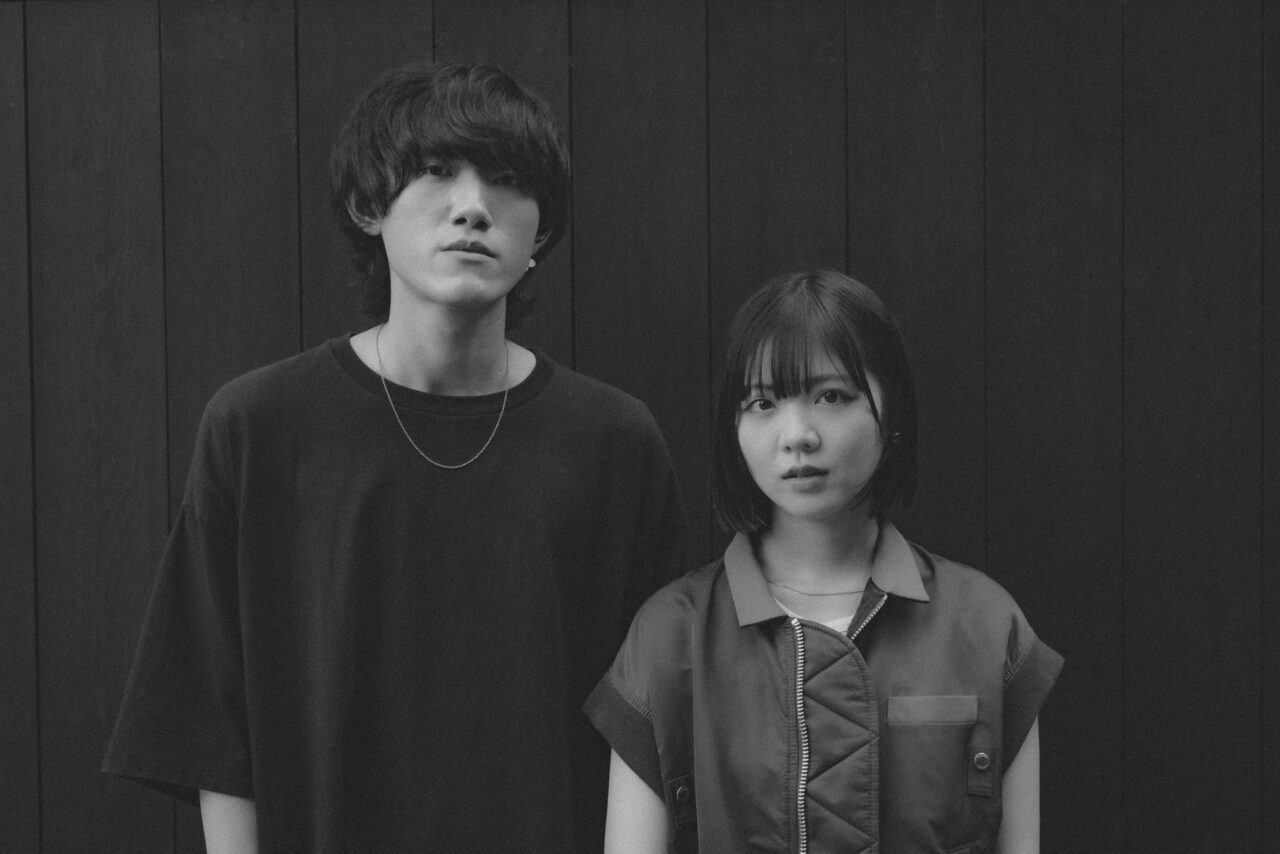
As you said, that whether it’s “Tenshi-san” or “Heart no Ohire,” the songs move forward, but there’s always an undercurrent of fragility and loss.
Etsu: A significant moment for me was when my grandmother passed away, less than a year after we formed the band. That experience made me realize just how deeply “loss” and “change” affect me. While I often leave the subject of my lyrics open to the listener, I think I’m usually reflecting on experiences of loss when I write. I don’t feel the need to provide answers, but I do want people to face these feelings. Life is full of loss, and so much slips through our hands. Yet perhaps it’s the traces of what we’ve lost that shape our lives. Thinking about it that way, sharing this kind of expression through music feels meaningful to me.
Serena, how do you interpret Etsu’s lyrics when you sing?
Serena: For me, Etsu’s lyrics give the sense that past, present, and future aren’t separate. Everything is interconnected, so even when a song talks about loss, it can feel hopeful. And even if you’re in a situation where being positive is difficult, the music still conveys the passage of time. When people say his songs feel nostalgic, it’s not nostalgia in the sense of living in the past and ignoring the present. I think this sense of continuity runs through all his lyrics. That’s why I try to let the words flow naturally when I sing so it doesn’t feel too heavy. Writing entirely in Japanese also reflects his intention to truly reach the listener.
Etsu: You just said everything I couldn’t articulate [laughs]. I do want my writing to cross different points in time within a song, almost like creating a mental timeline.
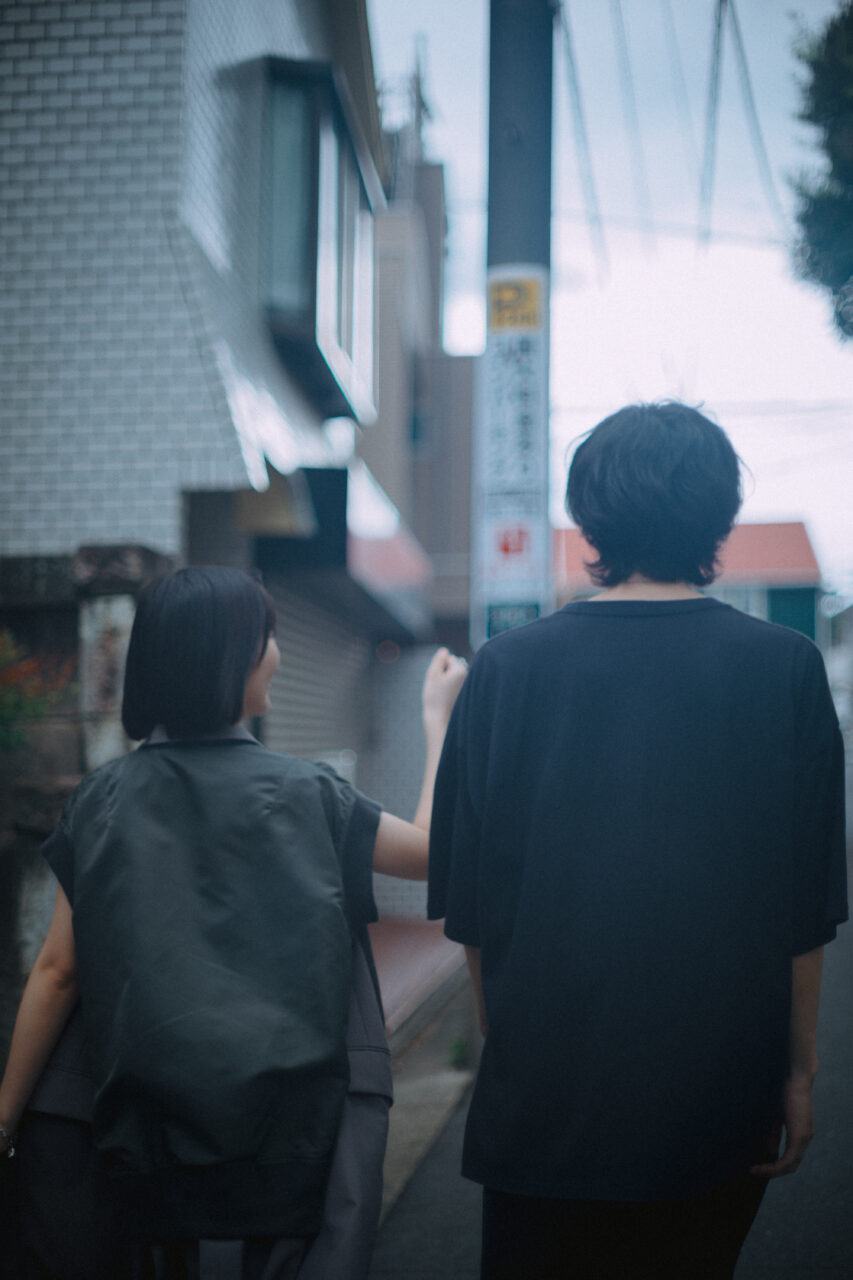
INDEX
Creating Songs That Become Part of the Listener’s Everyday Life — Serena
As you put together your first full-length album, MELT, was there a particular concept you had in mind?
Etsu: The title MELT came naturally partly because our previous EPs were called ripple and murmur both inspired by fluid imagery—ripples and streams. MELT, meaning “to melt,” doesn’t just capture a single moment; it feels like it captures the process of change between points, the in-between. It’s not just 0 or 100 — it’s about freezing the passage of time, something even a photograph can’t do. I feel like MELT expresses that and I find it fascinating.
Etsu: Even in songs that didn’t make it onto the album I’ve often used “melt” in my lyrics. It’s always been a word with special meaning for me. Using it as the title of our first full-length album felt like a natural, bold choice. This album reflects the past three years of our band’s growth and in a way all of our time together up to now has been melted into this record.
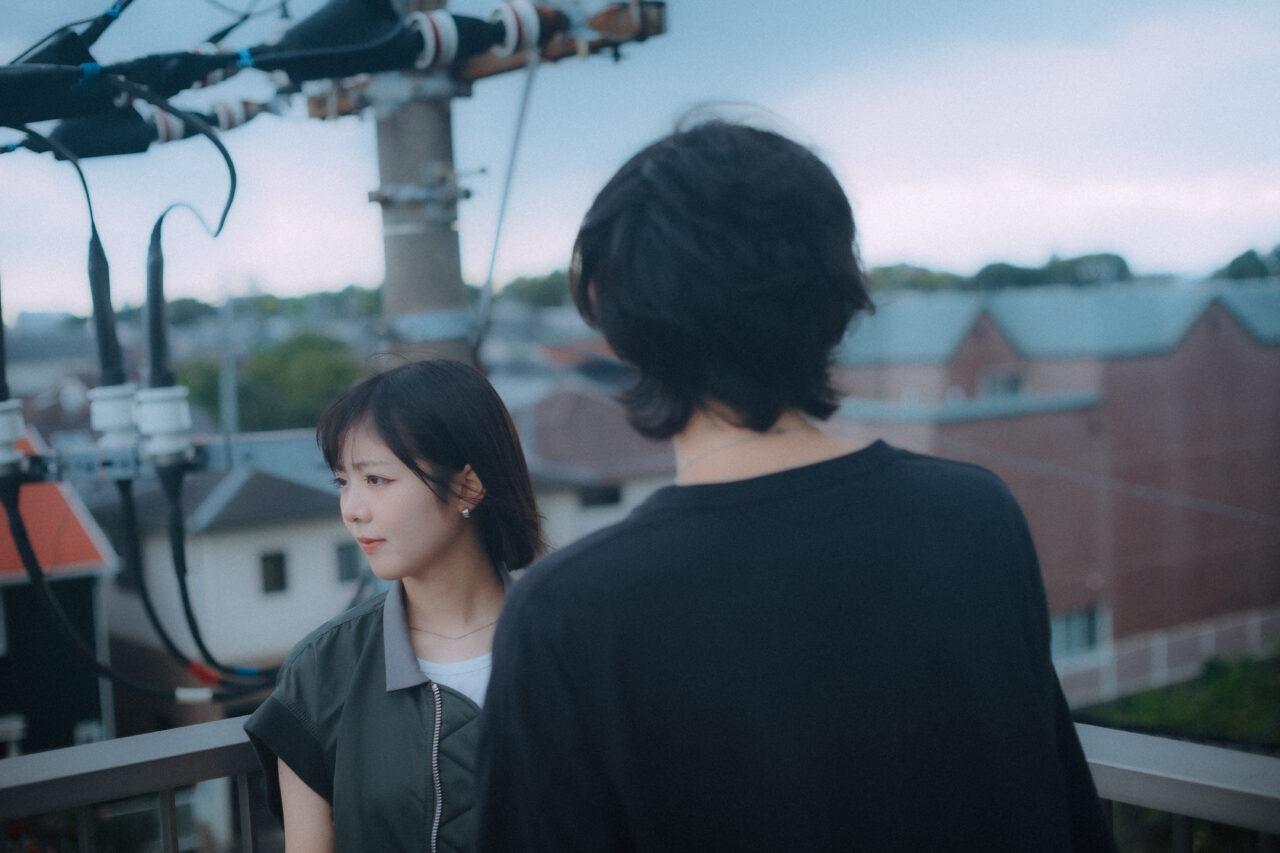
So this album also reflects the band’s own flow and journey.
Etsu: The songs were written at different times and in different styles, but looking at the album as a whole, its progression feels very curved. You can sense all the twists and turns; it’s far from linear. And that’s what makes it satisfying. By the end, everything blends together and finishes lightly, which I really like.
The final track, “Yoru wa Melt,” captures that perfectly, right?
Etsu:I didn’t want a dramatic farewell. I wanted the album to end on something light, so we placed “Yoru wa Melt” at the end. It reflects the fear and sadness of loss, but I also didn’t want it to suggest permanence in material things. The ending comes naturally and passes lightly. No matter how intense the emotions are, they vanish in an instant. I wanted to capture that fleeting sense within the album’s flow. It’s a feeling that might be similar to the awe or unpredictability of weather or nature. That’s what I wanted to express.
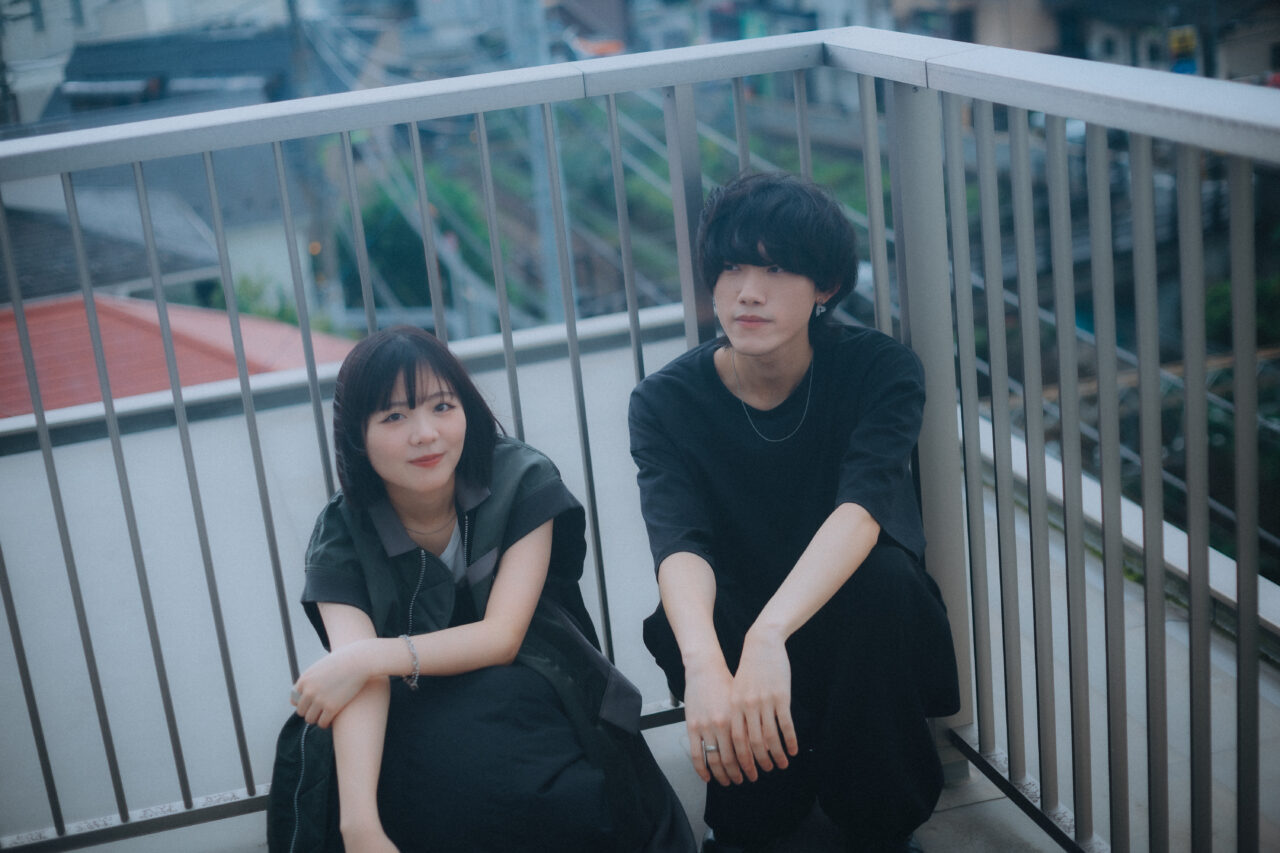
What you just said explains why rubens’ music, even when it paints such decadent and poetic worlds, still fits so naturally with the simple realities of everyday life and the feeling of actually being alive.
Etsu: Eternity only exists in the past. Trying to find it in the “now” feels like a kind of prettiness or idealization. So I make sure never to write that way.
A song like “Fragile,” with its distinctly poppy, melodious, almost kayōkyoku-style sound, feels like a fresh direction. Do you think you’ll be exploring more songs in this style going forward?
Selena: Even so, “Fragile” was actually written about two years ago.
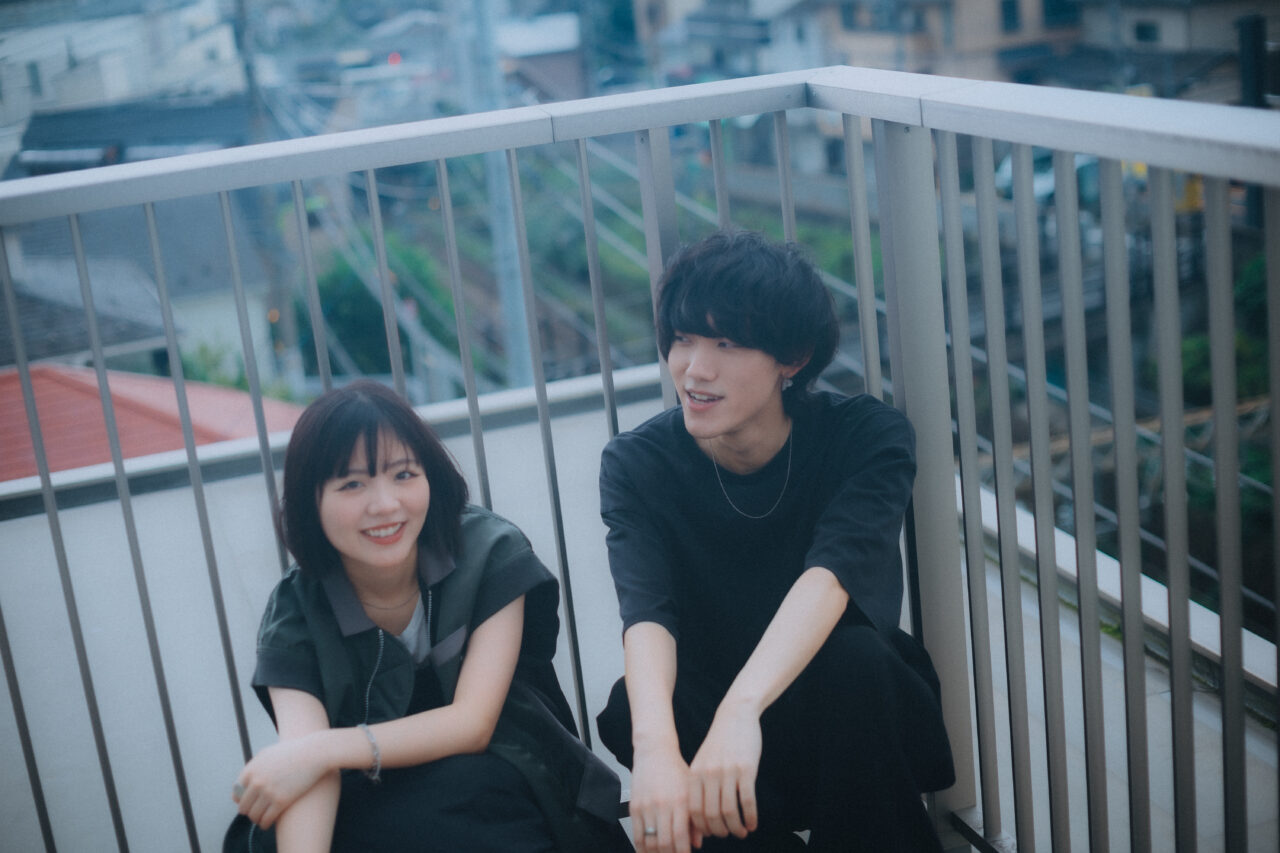
Serena: I think every Japanese person has grown up with kayōkyoku in some way, so this sense of melody didn’t suddenly appear in us—it’s something that naturally seeped in. We don’t feel the need to define our band by labels like “pop” or “alternative.” But I do think our intention to truly reach listeners has grown stronger as a band. To me, the word “pop” means creating something that sticks in people’s hearts. I want to make songs that become a part of someone’s life, songs that people find themselves singing quietly to themselves. Songs that can really resonate with each listener.
“MELT”
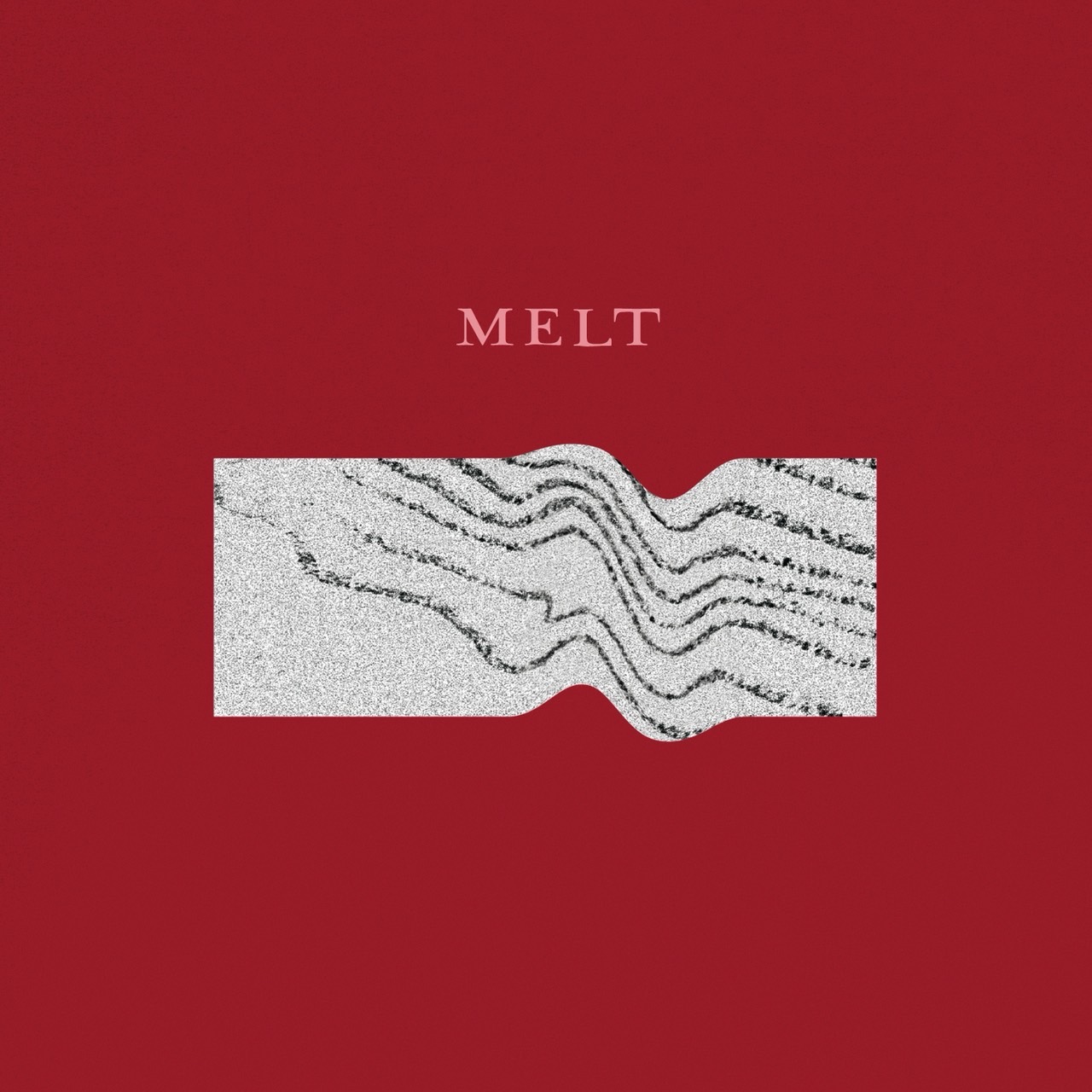
Digital Release: 2025/10/29
CD Release (TOWER RECORDS Exclusive): 2025/11/5
https://ssfuga.lnk.to/MELT
Track List
1. Ai wa Yuge
2. Kaze wo Tomenaide
3. Thirsty Days
4. Warui Ame
5. Fragile
6. Tenshi-san
7. Iki Shiroshi
8. Tsukinami-chan
9. Hidamari no Naka de
10. Heart no Ohire
11. Yoru wa Melt
NiEW presents “exPoP!!!!! vol.180”
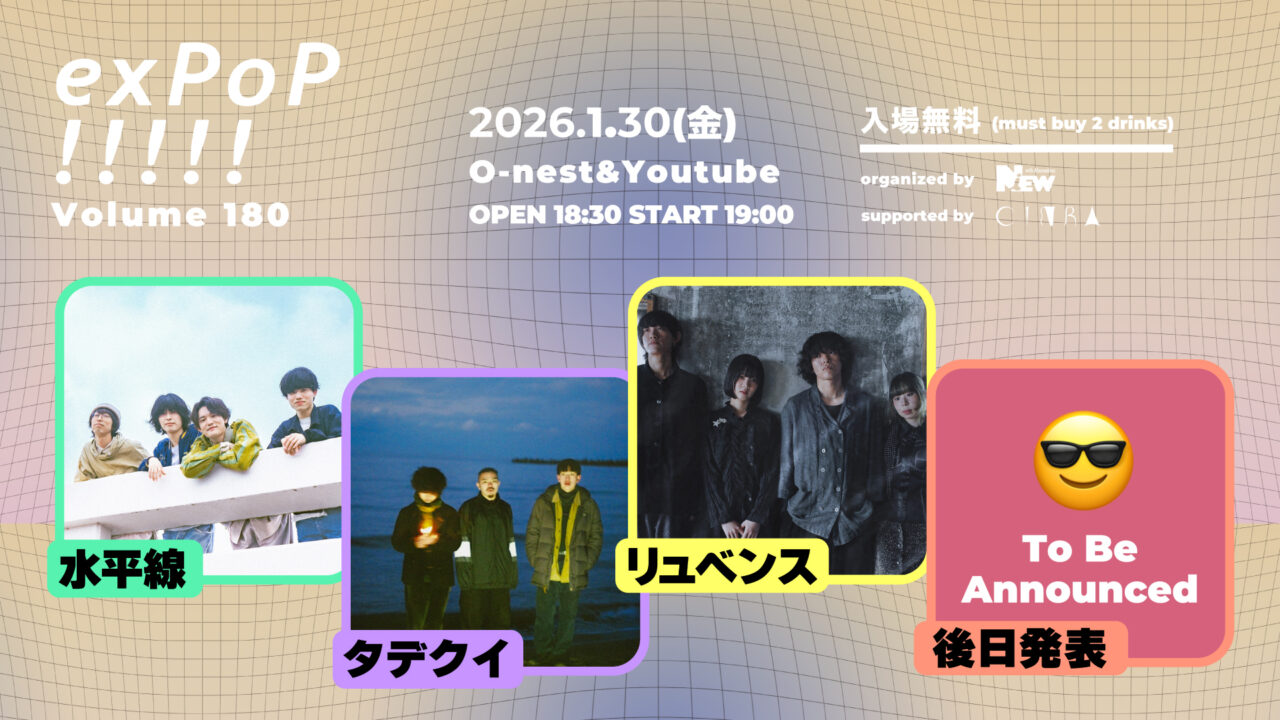
January 30 Friday
Spotify O-nest
OPEN 18:30 / START 19:00
Free Admission (must purchase 2 drinks)
Free Live Stream Available
Lineup: Suiheisen, Tadequi, rubens, and more!
Ticket Reservations
*Please note that entry may not be allowed without a reservation
https://expop.jp/news/uucqvgv9t7y2




